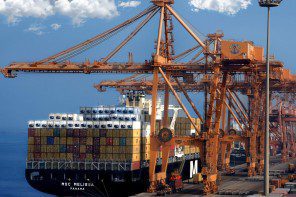 Experience has shown state-owned business suffer from inefficiency, corruption and bureaucratic red-tape. Many public sector organizations are kept alive by injection of state funding. The losses keep on adding up until the cumulative loss reaches a stage that it cannot be disinvested. They eventually become a perpetual liability for the State and the Government.
Experience has shown state-owned business suffer from inefficiency, corruption and bureaucratic red-tape. Many public sector organizations are kept alive by injection of state funding. The losses keep on adding up until the cumulative loss reaches a stage that it cannot be disinvested. They eventually become a perpetual liability for the State and the Government.
However, in the context of developing countries, it is not unusual to see the Government engaging itself in business. This normally happens in capital intensive business where there may be lack of private entrepreneurs. Defence industry is one sector where the Government may find it too sensitive to rely on private sector. It is quite normal to see developing countries having their own national airlines owned and operated by the state. In some cases the Government may even take initiative to create a national shipping line. Similar things may also happen in case of heavy industries like steel, fertilizer, oil refinery, ship-building; and exploration and development of oil, gas and other mineral resources. However, two things the Government must ensure. One that Government finds the right professional people to run those industries without bureaucratic interference. Two, Government must not maintain monopoly except defence industries and allow private sector to grow in parallel to the public sector. In most countries telecommunications once operated by the Government have been eventually opened to private sector for competition, technological advancement and better service.
Airports and seaports are being already privatized in many parts of the world. Each state considers its own circumstances and after extensive public consultation, decides on the mode of privatization. Some states prefer to keep control towers (VTS in case of seaports) in its own hands. States will positively retain the final say in respect of security matters.
Last week I read something very interesting in our newspapers. It reported that none of the 32 parties given licence to build ships for carrying containers from Chittagong to Pangaon terminal have taken any initiative to build any ship, rather trying to sell their licences for good profit. These licences were reportedly issued to people who had no business experience. They got it because of their political link and connections. I got surprised because I knew nothing about this matter before.
The news item has given rise to many questions. To the best of my knowledge, there is no legal provision in present merchant shipping or inland shipping legislation for the Government to grant such licence. As far as I understand, transportation of goods and passengers within Bangladesh may only be done on Bangladesh Flag vessels owned and operated by Bangladeshis. To the best of my knowledge there is no other barrier or restriction. However, common requirements such as the vessel being surveyed by competent authority, certified fit (seaworthy), and the personnel being duly qualified under law shall always apply.
We live in a world of open and competitive business. Anyone who complies with all the requirement of existing law can set up a business and operate the same. Why should it require special licence? If there is a demand for movement of containers from Chittagong to Pangaon, I am sure our smart business community will take advantage of the situation and place their vessels. If suitable vessels are not available in the country, they may buy or charter suitable vessels. Since Bangladesh has all the expertise to build such vessels, I am sure that operators would place order for new purpose-built vessels to eventually have a permanent slot of the business. Our naval architects, shipyards and ship-owners are capable of coming with best possible design and size of the suitable vessels. Let supply and demand drive the market. Let the concept of free economy prevail. Let us not introduce artificial barriers and requirements.
The Government must understand that provisions for more permits and licences make room for more corruptions and bungling. Why should we introduce such licensing when there is no need for such a thing? We must not resort to artificial barriers and licences which are undemocratic in nature.
Relevant: IMPORTANCE OF MARITIME SECTOR IN NATIONAL ECONOMY
However, now that Bangladesh has excellent ship-building facilities, the Government may consider a ban on import of ships under 5000 GRT. This will provide support to our industry and employment to our people. The Government should achieve this through appropriate legislation. In the past, we heard a lot about transfer of fund abroad by over-invoicing. At least this will close that loophole. Corrupt military dictators make money through permits and licences. Democratically elected Government must not resort to such activity.
I shall conclude the article by saying once again that Government should facilitate business but not engage in business (as far as practicable) or create barriers and bottlenecks.
<fazlu.chowdhury@btinternet.com>





